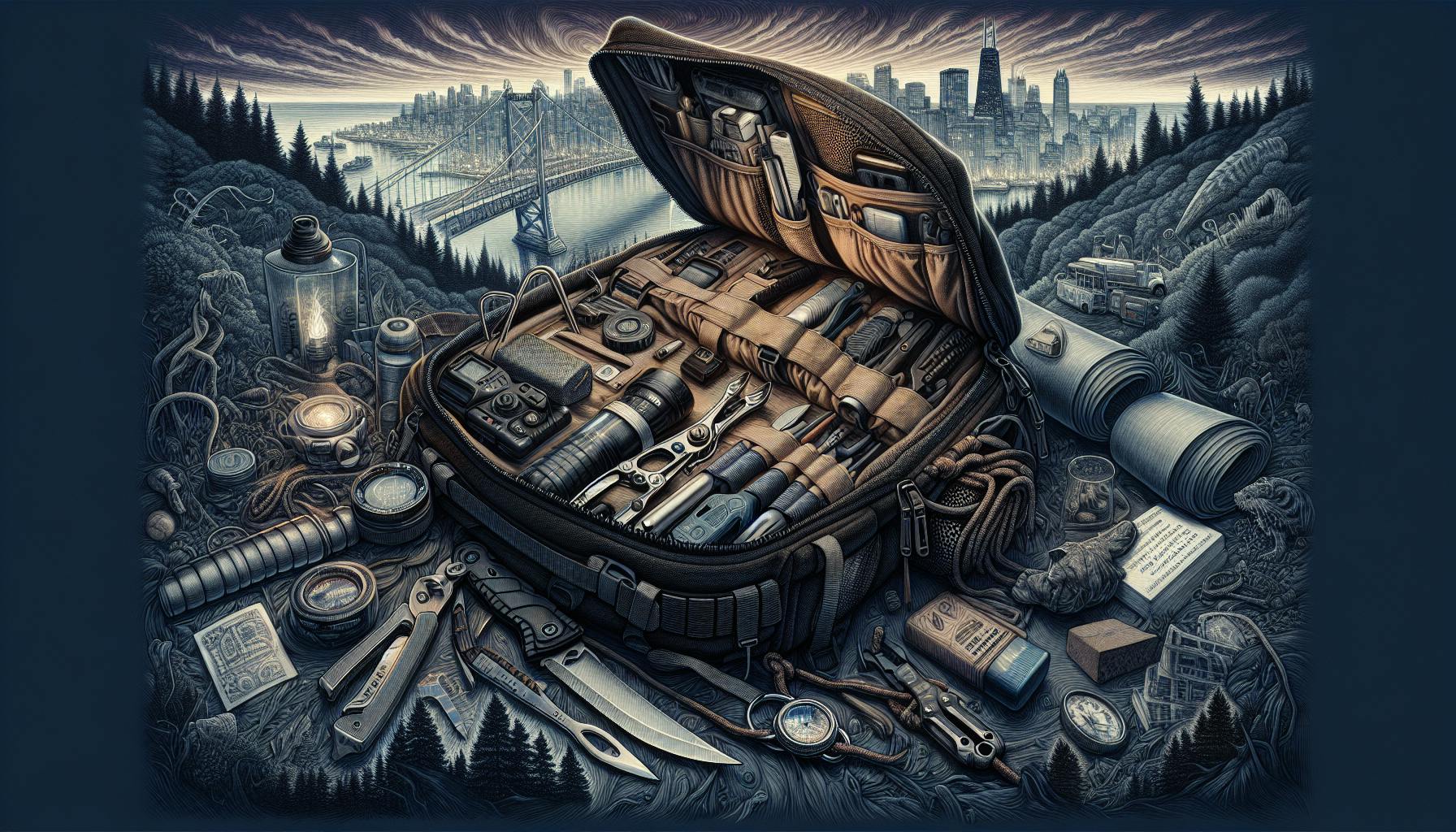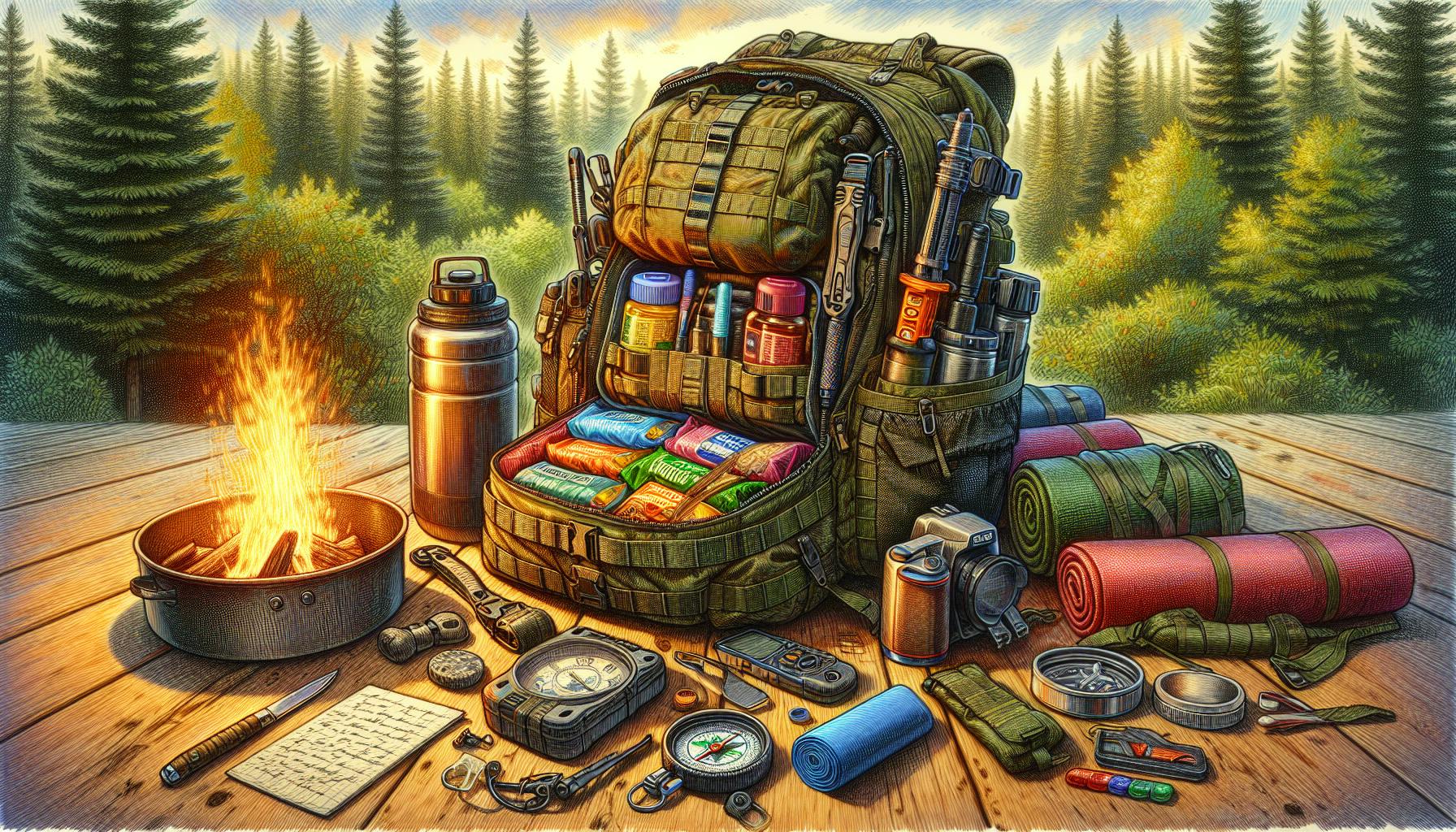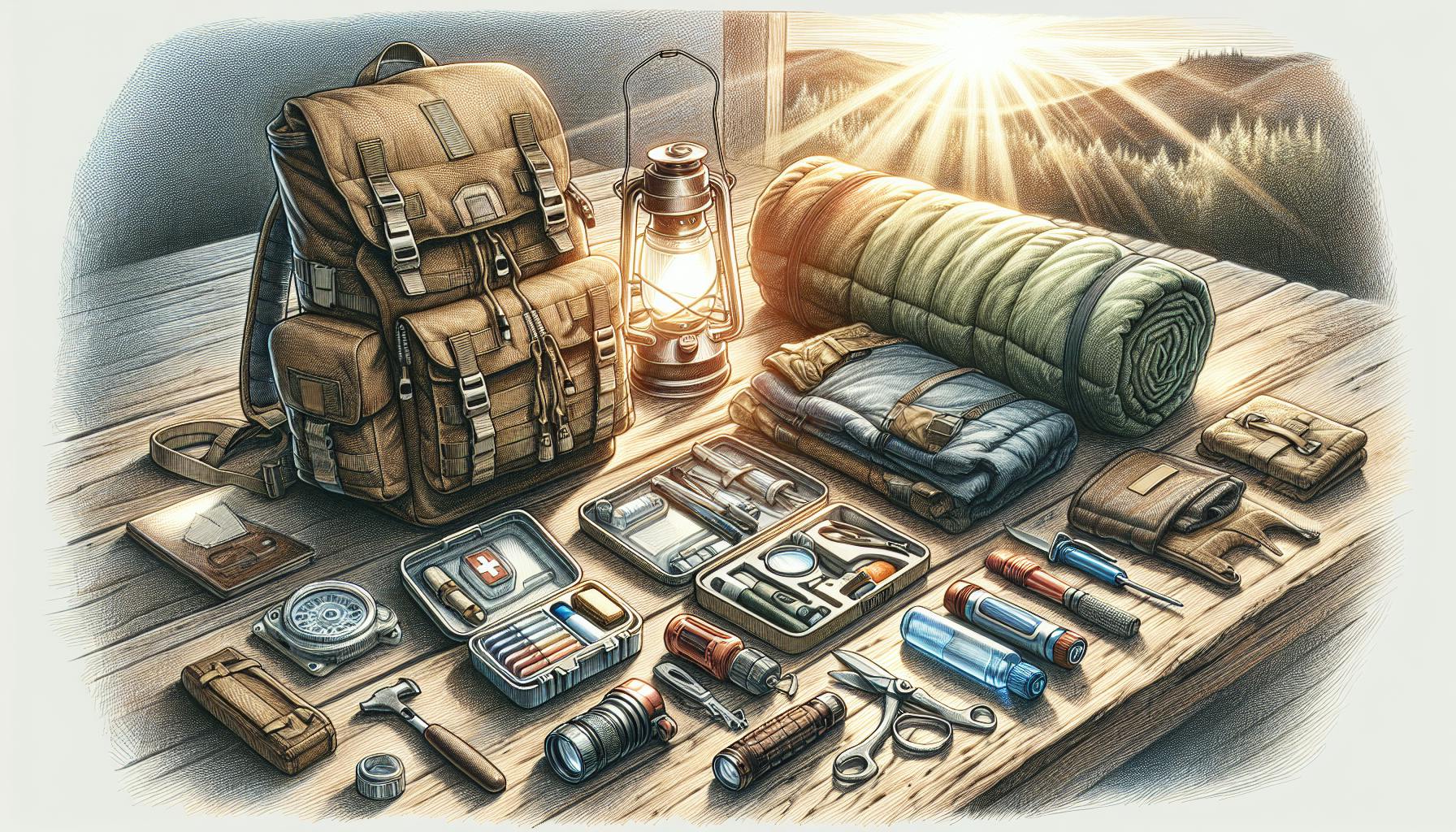Introduction
When disaster strikes, having a well-stocked pantry and emergency grocery list can mean the difference between life and death. Recent events like the COVID-19 pandemic, natural disasters, and civil unrest have shown just how quickly society can be disrupted. Supply chains falter, stores close, and grid systems fail, leaving communities stranded without food and water.
By building a comprehensive survival stockpile and shtf grocery list, you can sustain yourself and loved ones with shelf-stable nutrition, medical supplies, and gear to outlast any crisis. This article will provide a complete blueprint for the ultimate emergency pantry, including food, water, first aid, tools, and security recommendations. You'll learn how to balance nutrition, calories, and longevity in your planning. We'll cover specialized supplies for your region's risks, long-term storage tactics, and tips to keep your stockpile fresh. Become empowered with the essentials for fortifying your self-reliance.
Shelf-Stable Food Essentials
The foundation of your stockpile should be nutrient-dense foods with long shelf lives. Stock up on:
-
Canned goods like Amy's organic beans, Eden Foods vegetables, and Santa Cruz canned fruits in juice. Look for low or no salt added.
-
Whole grains such as Bob's Red Mill rolled oats, quinoa from Alter Eco, and Sprouted Whole Grain Pasta from Banza.
-
Justin's peanut or almond butter, Cliff Bars, dried mangoes, and Mary's Gone Crackers provide protein and healthy fats.
-
Mountain House freeze-dried meals or Wise Company emergency food kits offer balanced nutrition when cooking isn't possible.
-
Bone broth protein powder from Kettle & Fire or Orgain's organic Plant Based Protein Powder can provide a quick protein and nutrient boost.
Water and Hydration
Stock at least 1 gallon of water per person daily for drinking, cooking, and hygiene. Store options include:
-
Bottled water like Nestle Pure Life rotated every 6 months. Store unopened in cool, dark places.
-
Water filtration systems like the Sawyer Mini to purify water from lakes, rivers, or rain.
-
Fill bathtubs, sinks, spare containers before storms to have reserves if pipes freeze or burst.
-
Store water purification tablets like Potable Aqua. 2 tablets treat 1 liter.
Meal Planning for Nutrition
When planning stockpile meals, aim for 2,000 calories a day with variety and comfort foods:
- Breakfast: Oatmeal, shelf-stable milk, dried fruit, protein powder
- Lunch: Rice, canned tuna, mayo, vegetables
- Dinner: Pasta, canned sauce, canned chicken, parmesan
- Snacks: Granola bars, trail mix, peanut butter crackers
- Drinks: Instant coffee, tea bags, powdered electrolyte mixes
Include morale boosters like chocolate, candy, instant cappuccino mixes. Pack spices, hot sauce, ketchup, mustard to liven basic ingredients.
Cooking Equipment
Be equipped to cook without power using a:
- Camp stove like the Coleman Classic Propane Stove
- Dutch oven such as Lodge's Pre-Seasoned Cast Iron Dutch Oven for baking, roasting, stewing
- Charcoal or propane grill with fuel for outdoor cooking
- EDC Titanium Camping Cook Set for boiling and frying
- Manual can opener, mess kits, utensils, plates
First Aid Supplies
Medical issues can quickly arise, so stock up on:
- Bandages, gauze, medical tape, trauma shears, digital thermometer
- Antiseptic wipes, disinfectants like hydrogen peroxide, rubbing alcohol
- OTC meds - pain relievers, anti-diarrheals, epi-pens, etc,
- CPR face shield, blood pressure cuff, pocket mask
Also store hygiene and sanitation items:
- Hand sanitizer, toilet paper, paper towels, menstrual products
- Bar soap, toothpaste, detergent
- Garbage bags, bleach for disinfecting
Have at least a 30 day supply of vital prescription medications like heart medication, insulin, etc. Consider OTC antibiotics like Augmentin in case infections occur and medical care is delayed.
Water Storage and Filtration
Consider these other large volume water storage ideas:
-
Set up rain barrels under drain spouts to collect rainwater.
-
Store pool shock like In The Swim Chlorine Shock in case you need to disinfect water from the tap or other sources. Use 1 tsp per 10 gallons.
-
Bathtubs, sinks, and spare containers provide emergency short-term reserves if water will be shut off.
Tools and Supplies
Equip your stockpile with tools for emergency repairs and builds:
-
Shovels, axes, Leatherman multi-tools, work gloves from brands like Mechanix
-
Duct tape, tarps, and rope to patch holes
-
Sunlight Supply Utensil Set, camp mess kits for eating needs
-
Lodge cast iron pan, pots, and utensils for cooking
-
Portable stove like the Coleman Bottle Top Propane Stove and fuel
-
Tents or tarps for shelter, Paracord, emergency blankets
Also stock up on lights, communication/navigation, and power:
-
Flashlights like Anker's Bolder LC90 LED and batteries
-
Crank and battery operated radios for news like the American Red Cross FRX3
-
Walkie talkies like Motorola Talkabout T800 for communication
-
Solar chargers like BigBlue's 28W Solar Charger to power devices
Have cash in small bills in case electronic payments are disrupted.
Self Defense and Security
Safety is crucial in disasters. Prep smartly and avoid conflict.
-
Curb panic-buying; only take what you need so others can get supplies.
-
Keep situational awareness without paranoia; help neighbors.
-
Strengthen home security with locks, alarms, video cameras to deter crime.
-
Pack bug out bags with 3+ days of essentials in case you must evacuate.
-
Follow official news and instructions on staying safe in the situation.
Stock Rotation
Rotate stockpile items before expiration dates to avoid waste.
-
Store items using the FIFO method (first in, first out).
-
Check dates quarterly and replenish soon to be expired products.
-
Mark expiration dates clearly with a marker when storing cans and containers.
Key Takeaways
Having a well-planned stockpile and shtf grocery list can help you survive any disaster with shelf-stable food, water, first aid, and gear. Store at least a month's worth of calories, nutrients, medicines, and tools. Balance your meal plans and cooking equipment. Fortify your home's security while avoiding conflict. Check and replenish your emergency stockpile annually to keep supplies fresh and ready for disasters. With smart preparation, you can ensure safety for your family even in the most dire circumstances.


